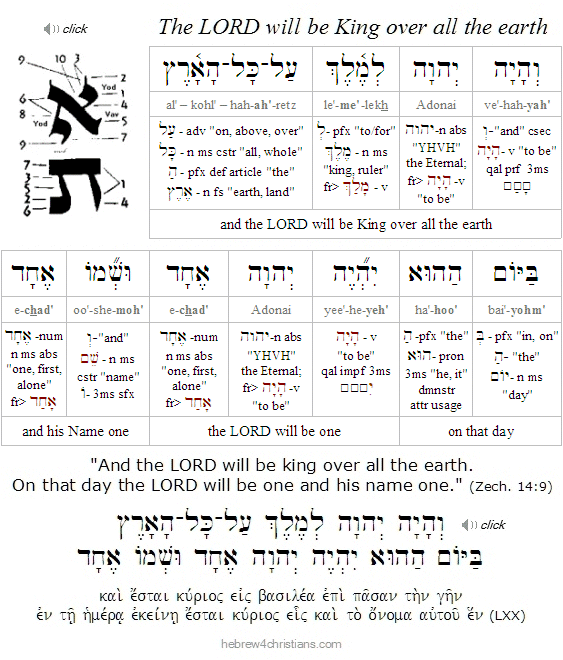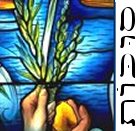|
Our Torah reading for the holiday of Sukkot includes Leviticus chapter 23, the great chapter of the Bible that describes the mo'edim, or the appointed times of the LORD. The chapter begins: "The Lord spoke to Moses, saying, 'Speak to the people of Israel and say to them, These are the appointed times of the Lord (ū×ūĢų╣ūóų▓ūōųĄūÖ ūÖų░ūöūĢųĖūö) you shall proclaim as holy convocations (ū×ų┤ū¦ų░ū©ųĖūÉųĄūÖ ū¦ų╣ūōųČū®ūü); they are my appointed times'" (Lev. 23:1-2).
The LORD then lists the eight appointed occasions for the redeemed people of God. First is the Sabbath day (v23), then the Passover and Unleavened Bread (v4-8), then Firstfruits (v9-14) followed by the Omer Count leading up to the jubilee of Shavuot (v15-21). These are the spring holidays, and for the most part Christian tradition has recognized these, albeit in an modified way, as "Good Friday," Resurrection day ("Easter"), and Pentecost, respectively.
The list of the appointed times in Leviticus chapter 23 continues, however, without a break in the Torah text, regarding the fall holidays, beginning with Yom Teruah ("Rosh Hashanah") (v23-25) on the first day of the seventh month, followed by the fast of Yom Kippurim on the 10th day of the month (v26-32), culminating in the holiday of Sukkot five days later (v33-43). Notice that the description of Sukkot is the longest of the holidays. This section of the Torah ends: "Thus Moses declared to the people of Israel the appointed feasts of the Lord" (v44).
There is a tension I feel within my heart during the Torah's holidays, particularly regarding the fall holidays of Teruah, Yom Kippurim, and Sukkot (but also with the winter holidays of Chanukah and Purim). As mentioned above, Christian tradition has generally embraced the idea of the Sabbath ("Lord's Day") and the spring holidays, but it has disregarded the other Torah holidays (though some church traditions still mention them as part of their liturgical calendars). This creates a sense of alienation within me because it fails to acknowledge how Yeshua came to fulfill every "jot and tittle" of the Torah (Matt. 5:17-19).
Just as there is a veil presently over the eyes of the Jewish people regarding the deeper significance of Passover and the spring holidays, so there is a veil presently over the eyes of the Christian world regarding the deeper significance of the fall holidays. When Yeshua returns to restore Israel after the prophesied End of Days, the fall holidays will be realized and fulfilled: All Israel shall be saved, and all the nations shall come to Jerusalem to hear the Law and celebrate the festival of Sukkot (Isa. 2:3; Zech. 14:16). Amen. Come, O Lord!
Hebrew Lesson
Zechariah 14:9 Hebrew reading (click):
 |
|


